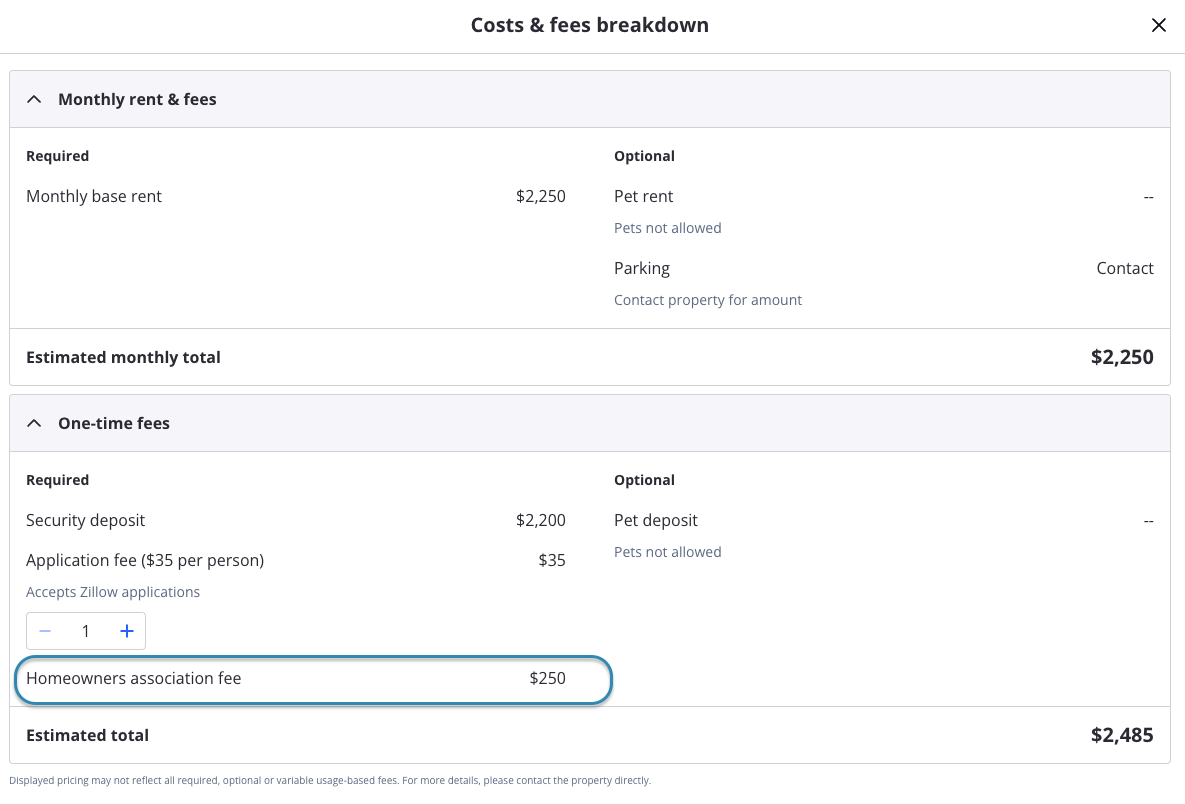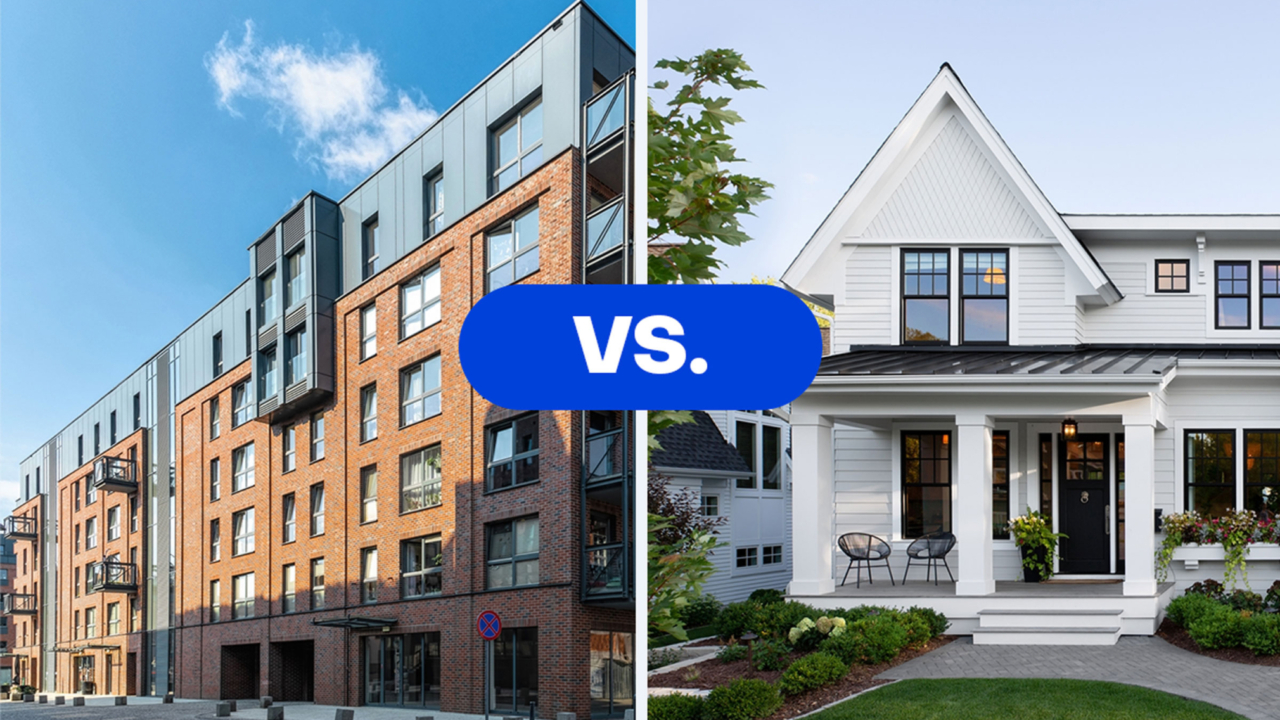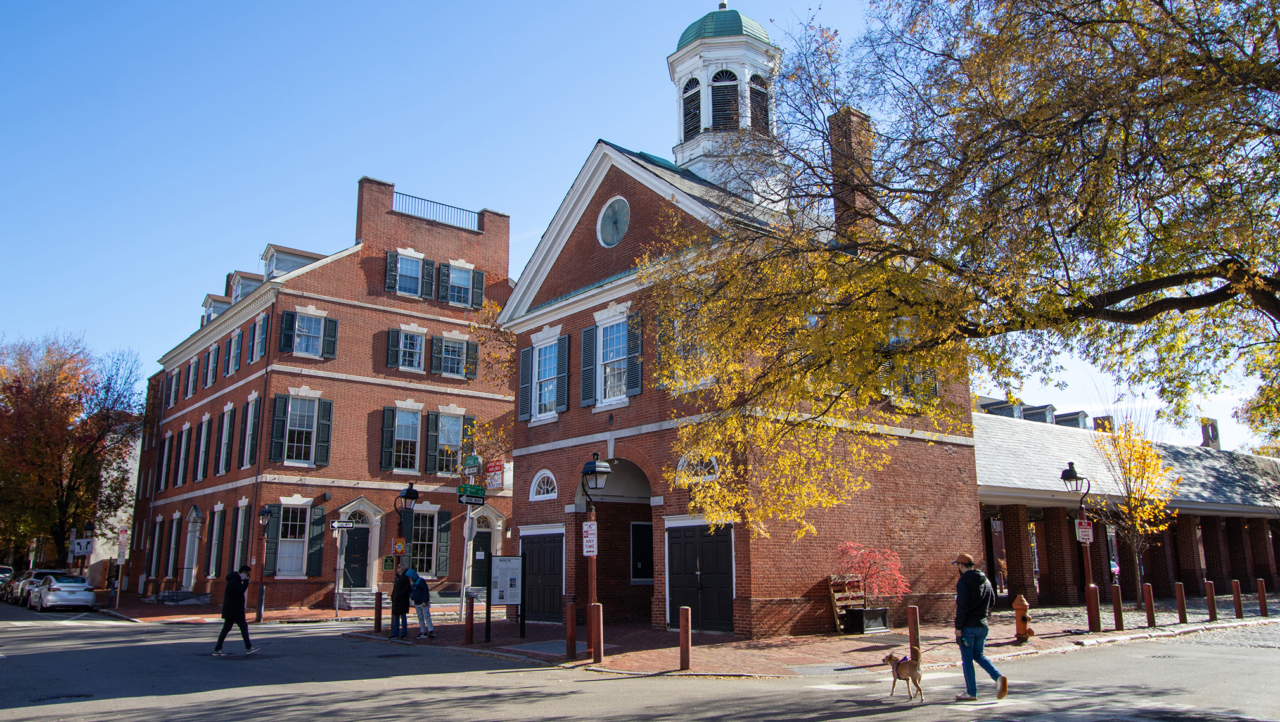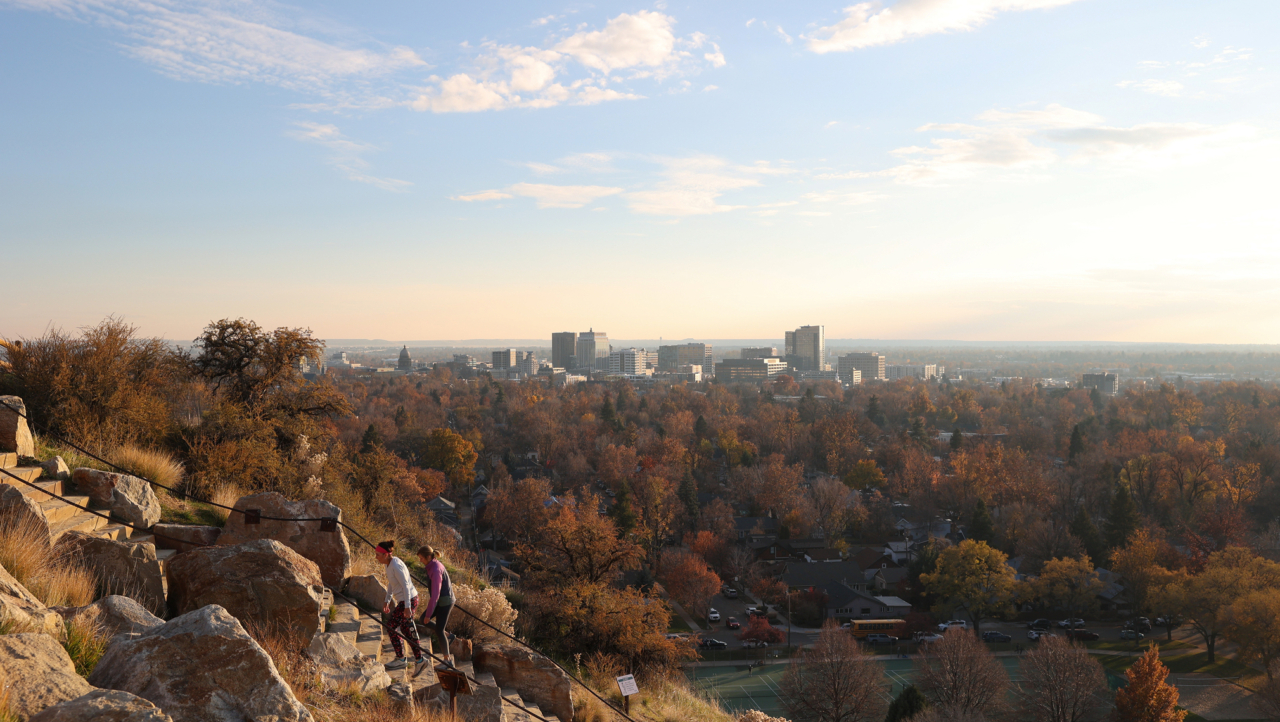7 min read
Do Renters Pay HOA Fees?


Written by Jennifer Lyons on October 23, 2025
Reviewed by Chrissy Tran, Edited by Alycia Lucio
Renters usually don’t pay HOA fees directly. Those monthly charges more often than not fall on the landlord, since they own the property. However, landlords can require tenants to cover HOA fees. Some landlords may even roll HOA fees into the rent, which means the “perfect” rental with a pool and fitness center might cost more to rent than that cute bungalow across town.
The good news is you can clarify whether HOA fees are required, and if the fees are included in the rent or an additional cost you’re expected to pay on top of the monthly rent before you commit.
What are HOA fees, really?
Think of HOA (Homeowners Association) fees as the subscription cost for your community. Property owners pay them monthly or annually to keep things running smoothly. A short list of what HOA fees cover may include:
- Mowed lawns and landscaping
- Sparkling pools, gyms, and clubhouses
- Exterior repairs and paint touch-ups
- Security guards or gated entries
- Snow removal or trash collection
- Emergency repair funds
Some HOA communities may have an additional cost for special assessments — which are large community expenses, such as a roof repair — on top of monthly HOA fees. Depending on the community, HOA fees can range from $50 to several hundred dollars per month. So even if you’re not paying those fees directly, there’s a good chance you’ll see some of that cost reflected in your rent.
Budget for your next rental with Zillow’s Rent Affordability Calculator.
How do you know if HOA fees are included in rent?
There are three easy ways to confirm whether HOA fees are included in your rent: The rental listing says so, the lease agreement specifies within your payment terms, or you can ask the property owner directly.
Check the rental listing
Most rental listings make it simple to see what’s included in your monthly rent. Alongside the rent amount, you’ll usually find a clear breakdown of additional costs and fees, such as utilities, parking, pet fees, and HOA dues, if applicable. This section provides a quick snapshot, so you’re not left wondering what your monthly payment really covers.
On Zillow, for example, each listing highlights these available details in the cost breakdown so you can quickly confirm if HOA fees are included. You can also dive deeper through the Renter Search Center, where you’ll find tools and resources to compare listings, understand fees, and stay on top of your rental budget.

Review your lease agreement
Lease agreements set the foundation for your landlord-tenant relationship, including who pays what. You may find HOA fees under the payment terms or responsibilities section within your lease. Some leases may even include HOA fees as an addendum. When reviewing your lease, check for clauses that mention:
- HOA or homeowners association fees
- Community assessments
- Shared amenities maintenance
- Special assessments (surprise one-time charges)
If you find the language in your lease unclear or would like further clarification, reach out to the property owner. Keep in mind HOA fees can change from year-to-year, which may change your rental costs if you decide to renew your lease and HOA fees are required.
Ask the landlord or property manager
Clear and open communication with your landlord is one of the easiest ways to avoid surprises later on. Before signing a lease, take a few minutes to inquire about HOA fees and rules. Not only does this give you a clearer picture of what you’re paying for, it also shows your landlord that you’re serious about being a responsible tenant. If you’re unsure about how to initiate the conversation, here are some helpful tips for communicating with landlords.
A few smart questions to ask include:
- Who pays the HOA fees?
- Are HOA fees rolled into the rent, or handled separately?
- What amenities are included with the HOA fee?
- Are there special assessments or upcoming fee increases?
- How are HOA rule violations handled?
Having these conversations upfront gives you peace of mind and sets the tone for a smooth landlord-tenant relationship. And chances are, your landlord will appreciate that you’re asking thoughtful, proactive questions.
What happens if HOA fees go unpaid?
If HOA fees go unpaid (by you or the property owner), associations have the power to take action, including:
Placing liens on the property
A lien is essentially a legal claim against the property for the unpaid debt. While it doesn’t affect your right to live there as a tenant, it could signal financial trouble for the landlord. If the lien leads to a foreclosure, tenants often have the right to stay in the property for the rest of their lease, or at least 90 days, depending on the situation.
Restricting access to amenities
Pools, gyms, or community spaces you were promised could suddenly be off-limits if the landlord hasn’t kept up with HOA payments. While this might seem minor, it can significantly affect your enjoyment of the property and, in some cases, could be considered a breach of your lease, especially if access to these amenities was explicitly included in your rental agreement.
Imposing late fees and interest charges
HOAs may charge late fees or interest when dues go unpaid. Typically, these costs fall on the property owner, but in some leases, tenants are responsible for paying HOA fees directly or reimbursing the landlord. If that’s the case, late fees and interest may be legally billed to you.
Even if your lease doesn’t assign you responsibility for HOA fees, unpaid dues can sometimes indirectly affect tenants. For example:
- Landlords might pass costs along through higher rent or additional charges in the future.
- Persistent nonpayment could trigger liens or other legal actions that affect your long-term stability in the property.
Initiating foreclosure proceedings
In the most extreme cases, an HOA can foreclose on a property if the owner falls seriously behind on unpaid HOA dues. Before that happens, the HOA places a lien on the property, which is a legal claim for the unpaid fees. If the debt isn’t resolved, the HOA may then move forward with foreclosure to recover the debt. While foreclosure sounds alarming, it doesn’t mean renters have to move out right away. Federal law protects most tenants in these situations, giving you the right to stay through the end of your lease, or at least 90 days’ notice.
What tenants should know and can do:
- Notification requirements: Landlords are typically required to provide notice before major actions that affect your tenancy, but rules vary by state. If your landlord fails to notify you, you may have legal protections to help prevent sudden disruption to your housing.
- Know your rights: Even during foreclosure, tenants often have the right to remain in the property until the end of their lease, or must be given at least 90 days’ notice, depending on the circumstances and local law.
- Seek legal advice: A tenant-rights attorney can help ensure you’re not unfairly given notice or financially liable for unpaid HOA fees.
Even though these situations don’t happen every day, they’re a reminder of why it’s important to understand your rights as a renter and the terms you’re agreeing to when you sign a lease.
Do renters have to follow all HOA rules?
Yes, you may not own the property, but living in an HOA community means the rules still apply to you. Think of it this way: the HOA sets the standards for the whole neighborhood, and tenants are expected to follow them just like homeowners. These rules can cover a wide range of lifestyle details, including:
- Pet policies and breed restrictions: Some HOAs limit the number or type of pets allowed, so you’ll want to get clarity beforehand to ensure the rental is pet-friendly.
- Parking and guest rules: Extra vehicles, street parking, or long-term guests may not be allowed — or they may require special permits.
- Noise ordinances and quiet hours: Some HOA communities enforce quiet hours after 9:00 p.m.; a noise complaint could land you (and your landlord) in hot water.
- Restrictions on outdoor décor or holiday lights: Decorating your balcony with twinkling string lights can be a fun way to make your rental feel like a home, but may not be allowed by the HOA board.
- Guidelines for shared spaces: Pools, gyms, and clubhouses often come with rules about when and how you can use them.
The takeaway? Always request a copy of the HOA handbook before moving in. Violating HOA rules or policies may result in a warning from the HOA or a fine from your landlord, which can quickly sour your rental relationship.
The bottom line on HOA fees and renters’ responsibilities
While HOA fees are not common for all rental communities, you may still run across a few that include them. HOA fees can impact your monthly rental expenses, so make sure you get clarity before signing a lease agreement on whether you’re responsible for paying HOA fees.
In addition to the cost, HOA communities may also have additional rules and policies that get passed on from the property owner to the renter. Read your lease carefully and request a copy of the HOA rules before moving in. Doing so can help you avoid unexpected costs and headaches, so that you may enjoy all the perks that come with living in an HOA community.
Find an apartment you’ll love on Zillow
With Zillions of up-to-date listings and filters for your must-haves, it's easy to find your perfect apartment on Zillow Rentals.
Search rentals


